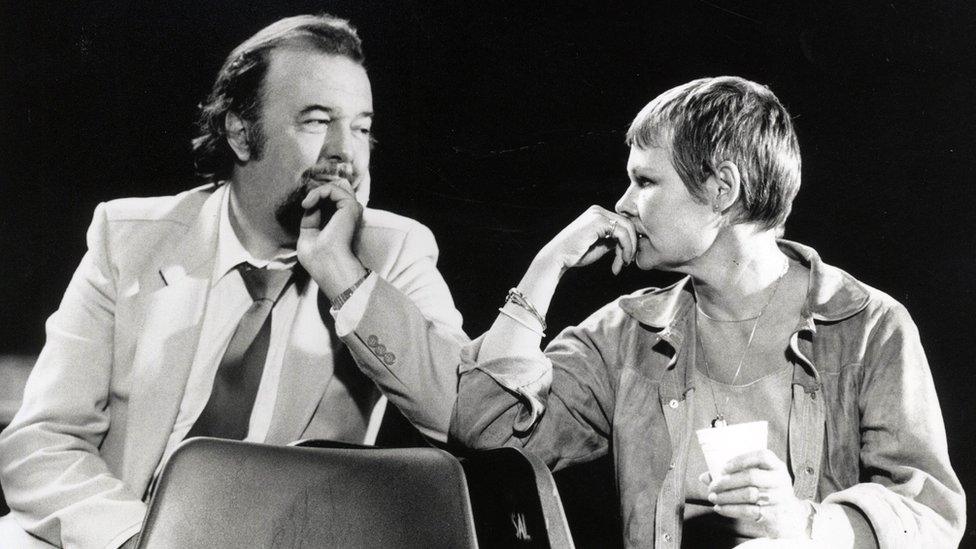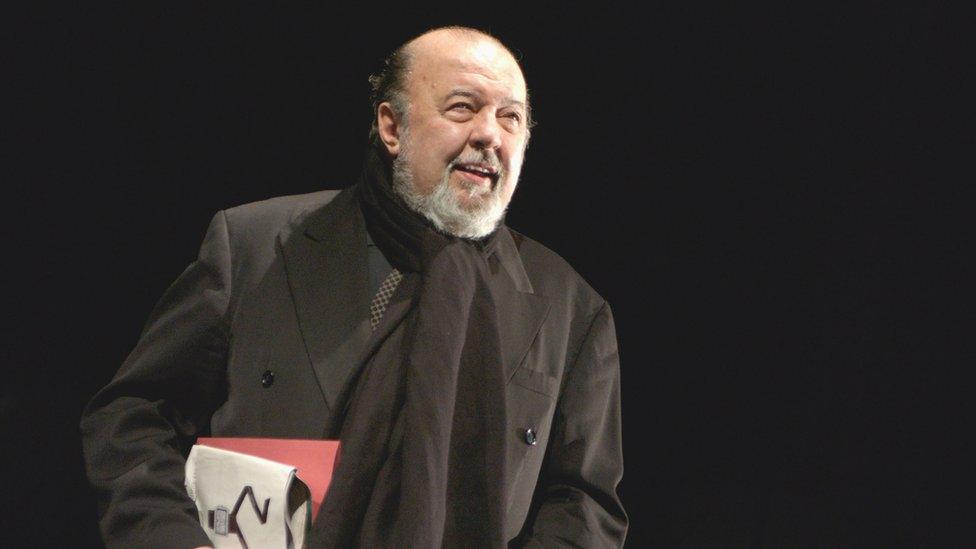How Sir Peter Hall changed theatre
- Published

Sir Peter Hall directed Dame Judi Dench in The Importance of Being Earnest
Sir Peter Hall was, in many ways, the single most influential figure in British theatre in the second half of the 20th Century.
Not just because he was the man who launched Beckett in Britain, or founded the Royal Shakespeare Company, or transformed the National Theatre from a niche affair operating out of the Old Vic into a three-stage, globally respected, highly ambitious production house - all of which were great achievements.
But what really made him special was what he did for others - the way in which he helped playwrights, actors and fellow directors flourish.
He was a big character, but it was never about him: he cared only for the playwright's text and how he and his actors might most successfully bring the words to dramatic life.

He will be remembered for all these reasons, but perhaps above all, his enduring legacy will not be as a director, but as a visionary impresario.
Sir Trevor Nunn once said that Hall had "changed theatre from ancient to modern".
He did so in two ways. Firstly by combining the ancient and modern - most notably during his time running the RSC.
And secondly by developing today's business model for many British theatres and producers, which consists of a judicious mix of public subsidy and private enterprise: a formula that has led to the golden age of British theatre we are currently enjoying.
Thank you Sir Peter Hall.

Follow us on Facebook, external, on Twitter @BBCNewsEnts, external, or on Instagram at bbcnewsents, external. Follow my Twitter feed: @WillGompertzBBC, external If you have a story suggestion email entertainment.news@bbc.co.uk, external.
- Published12 September 2017

- Published12 September 2017
